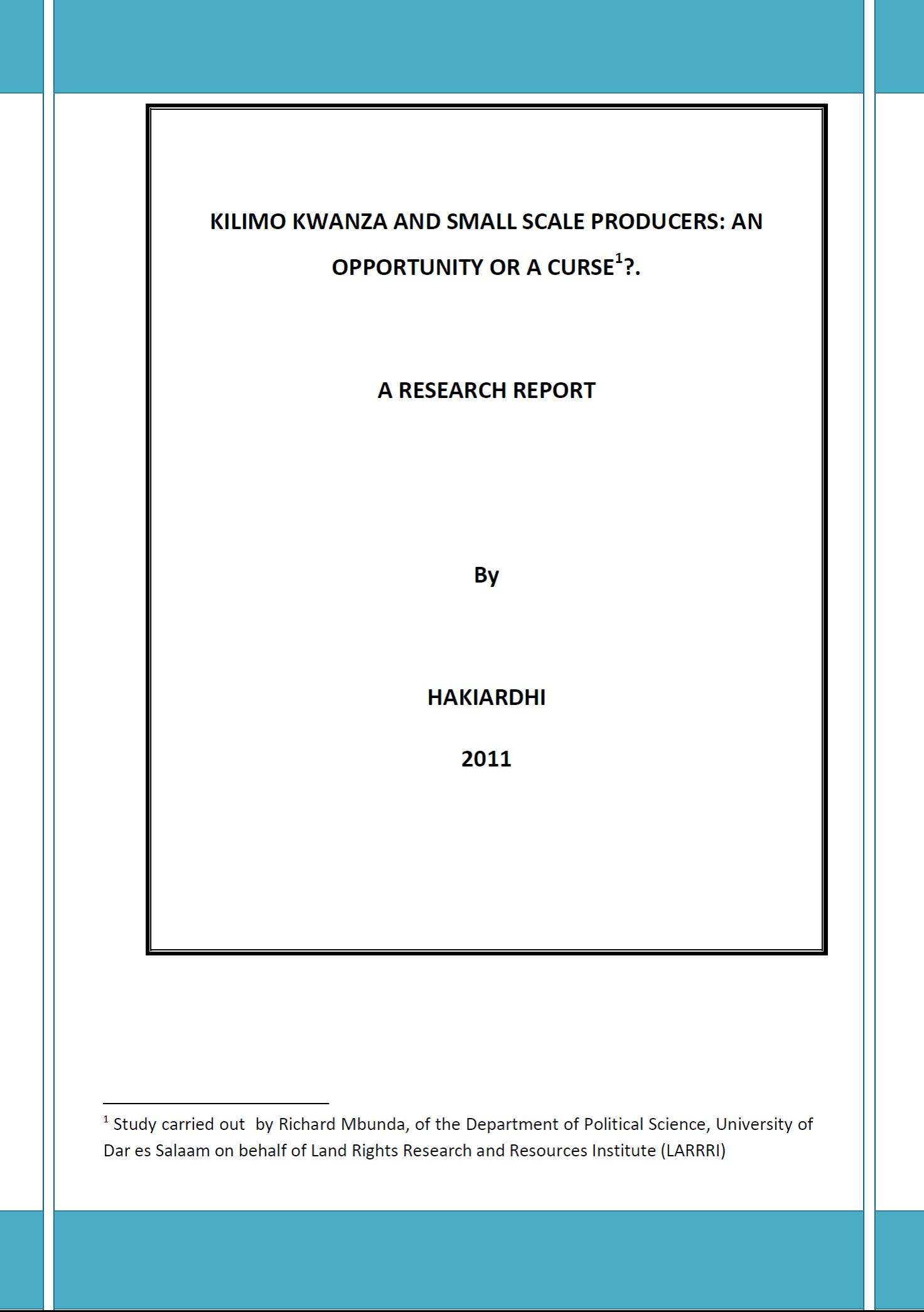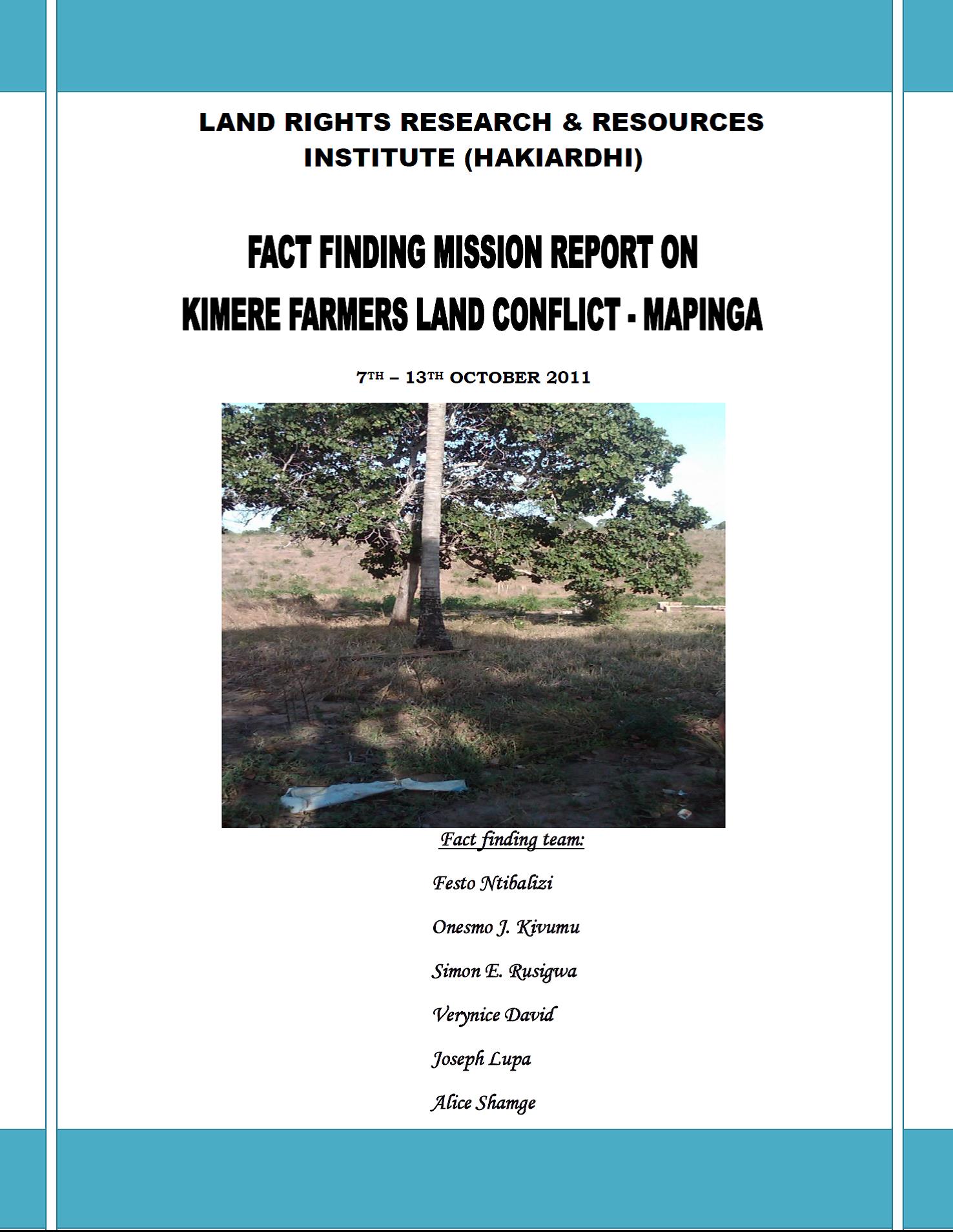Focal point
Location
The Land Rights Research & Resources Institute was founded in 1994 and registered as a non-governmental not-for profit company limited by guarantee under the Companies Ordinance, Chapter 212 of the laws of Tanzania.
The Institute was established out of the need to generate and sustain a public debate and participation, particularly where it matters in villages on issues of land tenure.
It is the institute’s belief that such debate will be better informed if. There is a recognition of indigenous systems of land tenure knowledge and experiences, a will and capacity to research into these and thus generate more systematic knowledge of the same; and an institutional arrangement independent of the state system to generalize local knowledge and experiences horizontally between and among village committees thereby producing a corpus of a truly national system of knowledge on land relations.
VISION
Land Rights Research and Resources Institute envisages a socially just and equitable land tenure system in which all groups in the society and especially the rural based small producers are guaranteed security of tenure, access and ownership to land and other means of their livelihood.
MISSION
HAKIARDHI's mission is to promote and ensure realization of the rights to land of about eighty percents of the rural based communities who are mainly small land holders and producers.
Members:
Resources
Displaying 56 - 60 of 85The Politics of Investment in Large Scale Agricultural Ventures: Case of Mpanda Rukwa Tanzania
Tanzania has always been a country in the spotlight over cases of land grabbing for various uses. Over the recent past there has been a lot of information in both print and electronic media of land being taken for various investment purposes. Little is known to the public of the deals the government is entering with these foreign investment companies that are eyeing Tanzania as a destination in agricultural investment. Investment in agricultural land has been a key driving force in Tanzania as a rush now has intensified in which agricultural land is being taken for various uses.
Investigative Report on Biofuel Investments
Increasing investments in biofuel production follow a shift of energy demand,in developed nations from fossil fuel to bio energyto run machines. Consequently, there has is an accelerated influx of investors from the Europe, Asia and Americain quest for productive and fertile lands.
Proponents of the biofuel investments say the investment will improve among other things, agricultural production, add value to local products and markets and improve social services such as roads infrastructure, health facilities, clean water supply and education.
Kilimo Kwanza and Small-Scale Producers: An Opportunity or a Curse?
This study sought to follow up the implementation of the Kilimo Kwanza initiative with the view to establish reliable facts on its significance to small-scale producers, mainly peasants and pastoralists. To achieve this, the study began by examining the perception of small-scale producers about Kilimo Kwanza and it assessed their participation in the implementation process. Moreover, the study scrutinized the proposed amendment of the Village Land Act and its implication to small-scale produces if carried out.
Land Grabbing in a Post Investment Period and Popular Reaction in the Rufiji River Basin
What has been the reaction of the rural producers and other land holders over these demands and actual land acquisitions? What does their reactions means in relation to ongoing land grabbing? While these questions are important this study was motivated by two major concerns.
Fact Finding Mission Report on Kimere Farmers Land Conflict-Mapinga
This fact finding is based on one of the claims of a group of peri-urban dwellers in Kimere, Mapinga village in Bagamoyo District, whose land they claim have been invaded by one of the well connected elite with a view to assist them register their rights only to realise later on that he was playing a tricky game to own their land.






